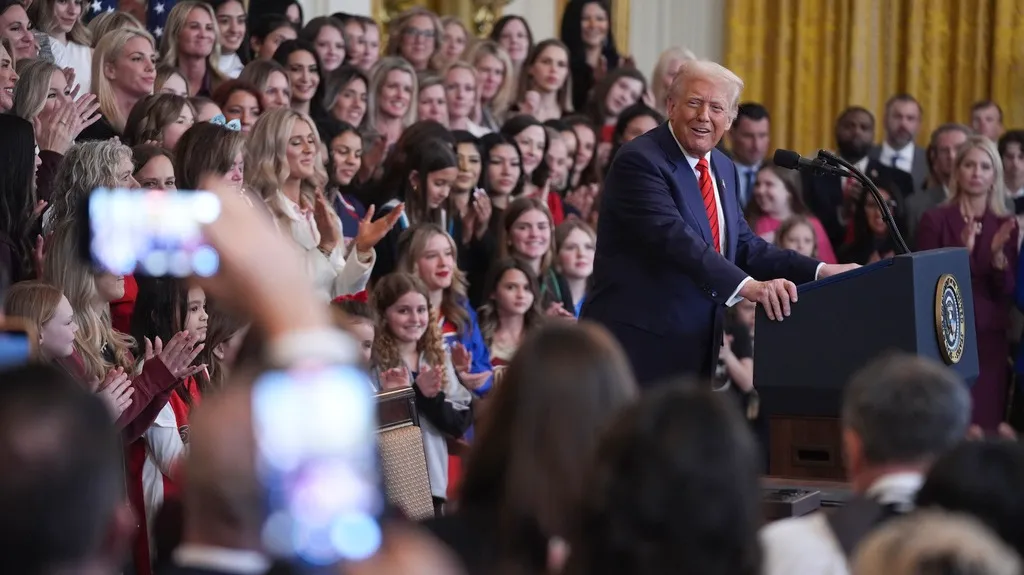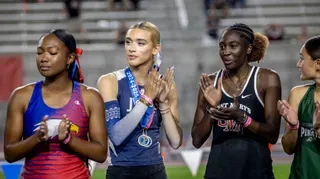July 5, 2012
How Obama's Pro-Marriage Equality Stance Is Bridging the Enthusiasm Gap
Daniel Scheffler READ TIME: 9 MIN.
After years of vacillating, when President Barak Obama finally announced his full support for marriage equality, there was a collective sigh of relief from LGBT voters, and then a cheer.
Oh sure, some activists remain disappointed that the president didn't forcefully state his opposition to the remaining 39 states that ban such marriages. But among the rank and file, this has not dampened enthusiasm. Among the Democratic Party's gay and gay-friendly elite, there has been a public and private push to support the president with words, deeds, and the most important thing in a national political campaign, money.
By waiting so long to take a stand, the president risked appearing to be following, rather than leading, the people. On the very eve of his historic statement, Gallup released a poll that showed a majority of Americans favoring marriage equality.
Biden’s role
The catalyst for the president's statement was Vice-President Biden, who inadvertently broke ranks with advisors when he stated simply his support on a TV news show. After that, Obama was finally forced to take a definite stance.
Afterward, he appeared to be liberated by his choice. No more would he have to pretend that he was still weighing the issues of civil unions vs. full-on marriage; recognition of those unions' legality state to state; or how much religious institutions could choose not to allow such marriages.
With his simple affirmative statement, Obama put gay marriage on the front burner of the upcoming campaign.
The Washington Post's Ezra Klein pointed out that Obama's latest stand marks a clear line in the sand with his challenger. Mitt Romney has been running as hard as he can from record as governor of one of the most liberal states in the country since the Iowa caucuses. As much as Obama looks principled, Romney risks appearing as the hypocrite.
"Coming out for marriage equality won't change things in terms of how much the right wants Obama to lose, but it might just help him win with folks on our side, and that's not a bad thing," said John Aravosis, editor of Americablog. In other words, those who never liked Obama always suspected he supported gay marriage, so his announcement didn't much matter.
Firing Up LGBT Voters - And Donors
He has certainly made strides toward bridging what has come to be called the "enthusiasm gap"; not with his entire base, certainly, but with LGBT, LGBT-friendly and social-issue voters.
To be sure, other Democratic Party constituencies are still disenchanted with the president. Many black voters see his marriage stance as a betrayal to their church's stance. Young people, who worked so hard for Obama in 2008, are more concerned about the lousy job market and crushing student loan debt. Many homeowners' mortgages are worth more than their homes. And the Occupy Wall Street crowd has a slew of issues, from bank bailouts to a broken social net.
But LGBT voters have jumped onto the re-election bandwagon with both feet forward. A recent New York Times article reported that Gay Pride events are doubling as recruiting stations for election volunteers.
Conscience & Politics
"The greatest advantage the Republicans had going into this election season was the enthusiasm gap," well known D.C. operative Richard Rosendall told EDGE. LGBT donors and voters are looking at the likelihood of the next administration appointing justices for the Supreme Court, and since marriage equality is increasingly a judicial issue, a Romney victory could mean a solid anti-gay rights majority.
Such long-term policy matters are important of course, but "In terms of a bigger picture, what really matters is that the leader of the free world is supportive of equality," noted Cathy Renna, a former GLAAD spokesperson whose public relations firm specializes in LGBT organizations.
She approvingly quoted Obama on the issue: "We can't wait for the rest of the country to catch up."
"It might be symbolic, but the world has taken notice and that is what matters ultimately," said Renna.
By framing his decision to support same-sex marriage as something very personal, arrived at in consultation with his young daughters, Obama shielded a very political decision as one of conscience. When daughters Sasha and Malia asked him, "What's the big deal about gay marriage," they cut through complicated legal arguments to get to the core issue of fairness.
The way in which Obama framed his position as a personal decision in consultation with his family helped cushion the negative impact, according to Evan Wolfson, who has been in forefront of the marriage issue since it began in Hawaii and who now heads Freedom to Marry. "Americans we want a leader that is authentic even if we don't fully agree with his statements," Wolfson said. "This was explained by Obama in a way that all Americans can understand -- with conversations with colleagues, friends and family."
But Will It Cost Him the Election?
Obama, above all, is a politician. Since activists (the sane ones with a reasoned position, anyway) are always working toward specific political goals, Obama would have lost more by not making a stand on an emotional issue that resonates with Americans.
Aravois believes that it is the public's job to make sure that "politicians see it in their political favor to offer support in terms of a bigger picture, and their political peril if they don't."
Besides, Rosendall added, Obama's "late is better than never" position can't directly translate to a change in the law: "He is the president, and not a tyrant, and still needs congressional action to change laws."
What makes Obama's statement seem brave are reports that most swing states don't agree with him. Seven of the nine battleground states (whose electoral votes are essentially the only ones up for grabs) have laws or constitutional provisions that prohibit same-sex marriage.
Rea Carey, executive director of the Task Force, believes that if Obama's evolution is now complete as the first sitting president to support gay marriage, he will also inspire other politicians. "Voters and elected officials who might have wanted to step up and have been afraid, will be less afraid to do so now," she said.
Wolfson not only doesn't believe Obama stance will hurt him in November, he also sees it as politically savvy. Wolfson has been following public opinion for a long time and sees the momentum decidedly shifting to our side.
Mary Bonauto, the director of the Civil Rights Project at Gay & Lesbian Advocates & Defenders, agreed. "Our country's history is one of expanding the circle of constitutional rights and protections to include more citizens, and our nation is always the better for it," she said.
Gathering in the Pink Dollars
The renewed enthusiasm is being reflected in the most gratifying way possible for a politician, money.
Fired up gay- and gay-friendly "bundlers" -- the donor rainmakers who assemble money -- are bringing in buckets of money for a presidential campaign that has lagged Romney's fund-raising. Up to one-sixth of Obama's top bundlers may be gay, according to various news reports.
Governor Andrew M. Cuomo led the way. After his upfront work in making marriage equality a reality in New York State last year, he has been raking in the bucks as well the love. Cuomo's success on the issue has made him a front-runner for the 2016 Democratic nomination for president.
Cuomo is also helping the man he may replace raise money. In June, he spearheaded a fund-raiser at the New York home of James Costos, an HBO executive, and Michael S. Smith, the Obama family's interior decorator, that netted $1 million. Cuomo was also involved in the highly publicized fundraiser at the home of Chris Hughes, a founder of Facebook, and his fianc�, Sean Eldridge, a senior adviser at Freedom to Marry.
Sheila Krumholz, executive director of the Center for Responsive Politics, which traces money in politics, however, keeps a skeptical eye on monetizing social issues. "Politicians will be hitting up the communities that are most likely to support their policy positions," she noted.
Surprisingly, Brian S. Brown, the president of the National Organization for Marriage has said that he does not object to Cuomo's fund-raising in the gay community, because the governor was so transparent in his enthusiastic support.
The question may be less whether it's right to capitalize on the issue than whether Obama has capitalized enough to make up for Romney's corporate support. Author Linda Hirshman has noted that gay organizations just don't have the budgets of the Wall Street firms that have lined up for Romney.
But the presidential campaign season hasn't even officially begun, and standing in the wings may be Romney supporters like Bill White, a well-known gay mover and shaker among New York's elite. White switched sides because Romney "has chosen to be on the wrong side of history."
Investment banks like Goldman Sachs are adamantly pro gay marriage; Goldman is the Human Rights Campaign's main backer on the issue and its CEO heads its marriage campaign. As corporations like General Mills, Starbucks and Microsoft come out for marriage equality, Obama may benefit.
"Obama has the gift of being underestimated by his opponents, both financially and socially," Rosendell noted. "We all have to make this an election be more than about just a fear of turning the whole government over to the GOP."
Based between New York and Cape Town, Daniel Scheffler writes about socio political and travel matters and is working on a memoir. Follow him on Twitter @danielscheffler.



